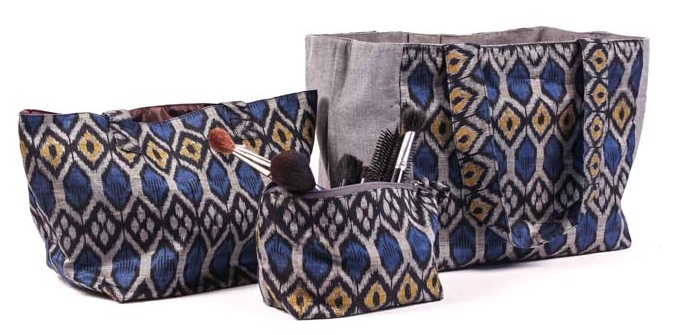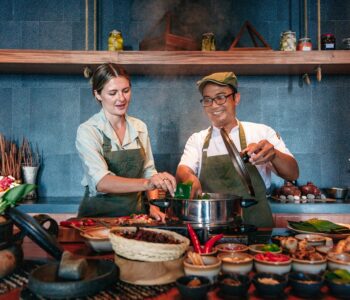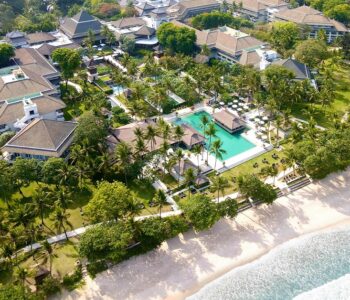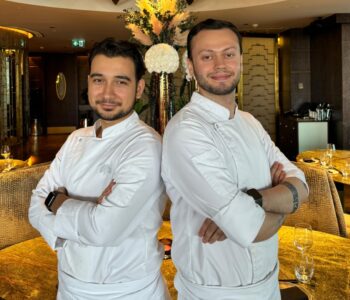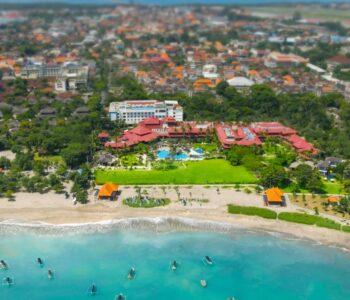12 years ago when Daniel Elber came to Bali, he encountered begging women with their children on the streets of Ubud, a situation that touched his heart deeply. Of course, he wanted to help, but in the right way. What we learned from our time speaking to Daniel is that his approach to charity is clear and simple, and is best described by the age-old saying “teach a man to fish and he will eat for a lifetime”.
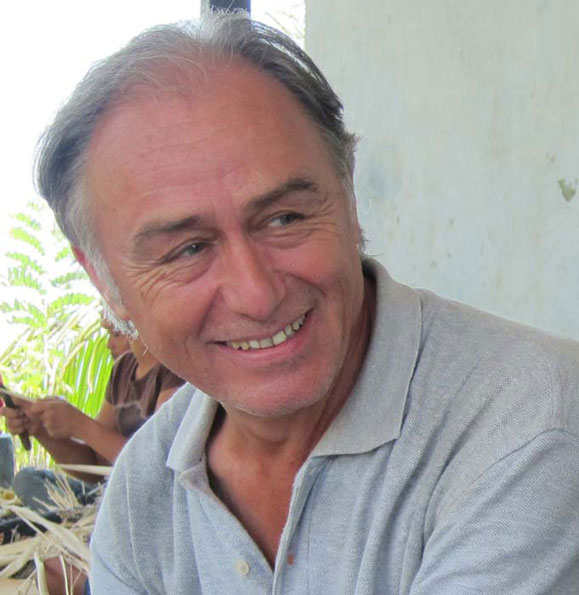
Can you please tell us about Muntigunung Community Social Enterprise and your role in its founding and process?
Muntigunung Community Social Enterprise (MCSE) is the first of a series of Social Enterprises in Muntigunung which are all owned by Indonesian Nationals. The main objective of the social enterprise is to generate as many sustainable jobs as possible. Proceeds of sales are being reinvested into enlarging the business to increase the number of employees.
Muntigunung, the “poverty house” of Bali, is where most of the beggars are coming from. The living conditions are exceptionally harsh, as there are no water sources available most of the year. As a consequence there are no jobs, no income, no access to health services, and very difficult hygienic conditions. The population focused their time mainly on organizing water and begging.
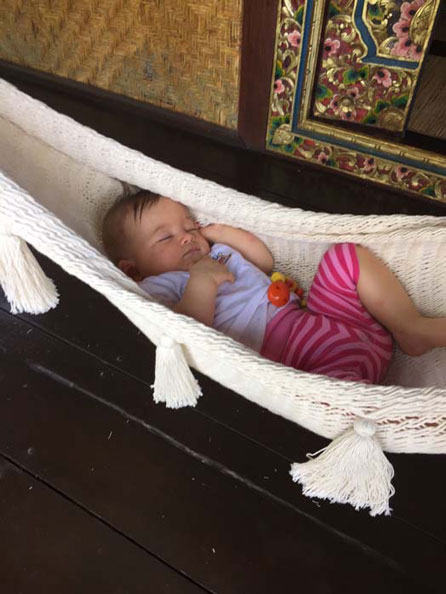
I decided to mobilise resources by creating the Association Future for Children in Switzerland (of which I became Vice President of the board), with the sole purpose to raise funds to create favourable conditions for a sustainable development in Muntigunung, Karangasem, and to associate the most professional Indonesian Non Profit Organisations as partners who would be willing to take over the task to develop the area.
All these capacity-building projects are being implemented by Indonesian Partners. It is the aim that the projects are only being subsidised by funds from Switzerland until products are developed and can be sold on the market. At such a stage, the activity is transferred to an Indonesian-owned small social enterprise.
My role in the whole process is to define the strategic objectives together with our partner organisations, to raise funds in Switzerland for the strategic implementation of the poverty eradication programme, to monitor the implementation process and to report progress to donors.
What are the objectives?
The strategic objectives to develop this area are simple:
- To implement a water supply of 25 litres per head per day for each inhabitant
- To create one job per family with a minimal income of around USD100 per month
- To reduce the high child mortality rate of 9% by 50%
- To assure an adequate education for all children.
The project implementation team consists today of Yayasan Dian Desa from Yogjakarta, MitraSamya from Lombok, lecturers from the Medical Faculty of Udayana University for health implementation programs and by local project Managersfrom Bali.
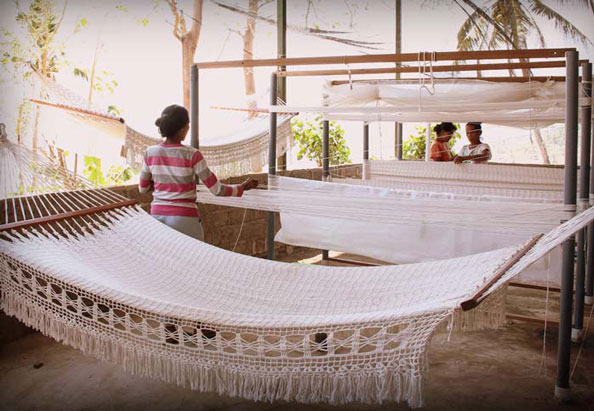
In order to implement the objectives, what are the Muntigunung Community Social Enterprise’s products for Bali?
In Muntigunung, the social enterprises are presently producing food products like cashew nuts, rosella tea, rosella sweets, rosella salt, dried mango as well as the high quality lontar palm sugar. In addition, customised hand-made lontar packaging boxes from bags and pouches out of traditional textiles as well as the most beautiful hammocks in Asia are being produced.
Most of the raw material originates from Muntigunung, is processed manually with total care, and the products are of an exceptional quality. The products have a strong local and social touch and are helping the disadvantaged local population to get jobs and earn income, creating self-esteem and result to the reduction and elimination of a key poverty cause in the area.
Why do you think it’s important for Bali?
Generally speaking we, the privileged people, don’t need to accept the fact that poorer and disadvantaged people have to beg to survive. It is possible to act and create the difference! The work in Muntigunung is therefore primarily a necessary compassionate support for the poor Balinese with the objective to help helping themselves.
In addition, the image of beggars and unsolved poverty problems to the huge number of tourists coming to the “Island of the Gods” is as similarly devastating as the environmental problems. Solving these fundamental issues with first priority is therefore not only a matter of survival for Bali. It is a matter of principle as well, a matter of following “Tri Hita Karana”.
Tri Hita Karana is a traditional philosophy for life in Bali. The literal translation is roughly the “three causes of well-being” or “three reasons for prosperity.” The three causes referred to in the principle are: harmony among people, harmony with nature or environment, and harmony with God.
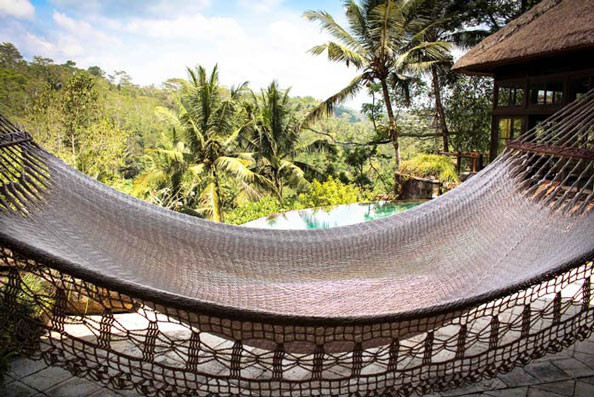
What’s your biggest challenge in Bali?
One of the biggest challenges is the process to change the mindset of people who are still on survival mode and therefore very opportunistic and “quick money” oriented into a more development-oriented thinking.
If we look at the social enterprises, the biggest challenge lies in the production costs, which tend to be much higher than mechanically mass-producing competitors, as the social enterprises are paying fair prices for raw material and fair salaries for the employees. They are employing as many of them as possible, even employing disadvantaged and handicapped people. Therefore, selling the products even with a small profit margin is not that easy, and it forces the social enterprises to find niche segments and niche products.
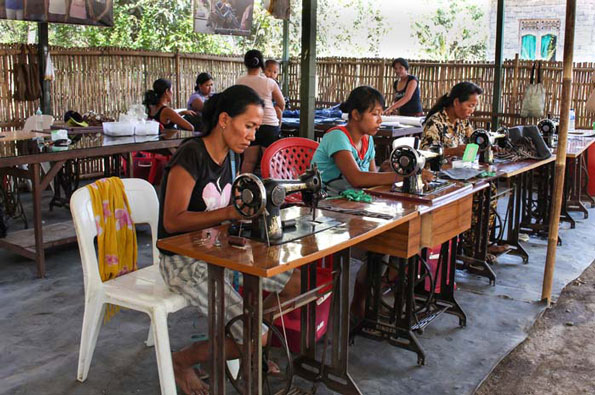
What’s your plan to extend your program or products in Bali?
Hopefully by the end of this year, 21 out of 36 villages will have a sustainable water supply of minimum 25 litres per head per day. 60% of the population now have access to toilets, and the profitable social enterprises and capacity building projects currently employ around 220 people.
The poverty eradication programme is continuing the strategic path, which started more than 10 years ago. Within the next 5 years and if funds are available, the remaining 15 villages will get a sustainable water supply. It is the intention to create access to toilets for the whole population of Muntigunung within the next 5 years and to reduce the child mortality rate by 50% within the same period. The first project is to assure an adequate education for all children, which will be implemented based on discussions with the community during 2016.
We are going to try to find new sales points in Bali, add new hotels as customers, open a booth for sales at Ngurah Rai Airport, as well as promote our hammocks to villa owners and hotels. It will be an interesting task for the year ahead.
If funding allows it, an additional village will be included into the production of baskets during 2016. In the same year, tests with the production of batik will start.
Visit and learn more about Muntigunung Community Social Enterprise:
Muntigunung
Tianyar Barat, Kubu, Karangasem
P: +62361 424619
E: muntigunungcse@gmail.com
M: +6281 353 996 996

